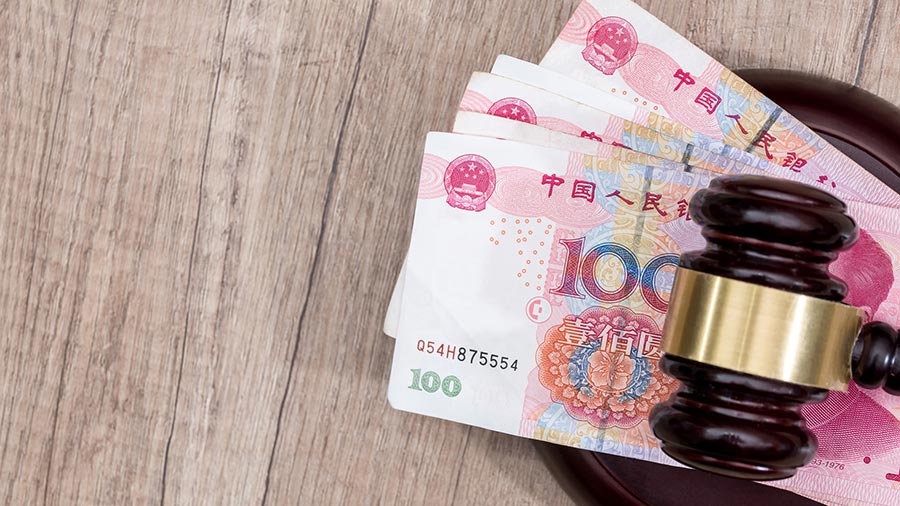Hong Kong Repositioned As A Belt And Road Arbitration Centre

In November last year, China’s Supreme People’s Court and the Hong Kong Government signed the ”Supplemental Arrangement Concerning the Mutual Enforcement of Arbitral Awards between the Mainland and Hong Kong SAR”. The agreement is widely expected to enhance the enforcement process and serve as an expansion of the 2000 Arrangement Concerning Mutual Enforcement of Arbitral Awards between the Mainland and Hong Kong.
It will assist with the development of the Belt and Road Initiative, as China recognizes that increasing imports, trade and multilateral investments this is facilitating will invariably increase the number of disputes between Chinese and Foreign businesses. Consequently, China is making efforts to align its arbitration practice and procedures with internationally acceptable standards.
The Supplemental Arrangement serves as a refinement of the existing Arrangement Concerning Mutual Enforcement of Arbitral Awards between the Mainland and the HKSAR, while functioning with fewer grey areas, providing clarity and certainty to parties looking to enforce their arbitral awards.
It clarifies that, apart from ‘enforcement, the existing Arrangement also covers the ‘recognition’ of the award. Recognition of an arbitral award gives it effect, whereas enforcement of an arbitral award sees to the execution of the terms of the award. The Supplemental Arrangement eliminates the uncertainty of whether an award made in Hong Kong must be recognized before it is enforceable in Mainland China.
The Supplemental Arrangement also allows for simultaneous enforcement applications in both Hong Kong and Mainland China, a major step forward, as it deals with the risk of delay of enforcement in the second jurisdiction and effectively addresses the concern that the award debtor’s assets in that jurisdiction may no longer be sufficient to satisfy the arbitral award. It strengthens the ties between Hong Kong and Mainland China for international arbitration.
Lawyers working in both Mainland China and Hong Kong are expected to see an uptick in PRC-related arbitrations along with an opportunity to leverage their expertise in both jurisdictions to the benefit of their clients.
With the Supplemental Arrangement, Hong Kong is placed in a unique position as a seat of arbitration. This is so because the enhanced enforcement regime not only introduces a simultaneous enforcement mechanism allowing the application for enforcement to be made in both Hong Kong and China, but also empowers the Mainland courts to grant interim relief against the award debtor throughout the arbitral process.
Dispute resolution lawyers especially will now have additional options in strategizing cross-border enforcement across Hong Kong and Mainland China. Transaction lawyers pre-planning dispute resolution and arbitration clauses in contracts will now be able to better manage risks and protect their clients’ interests in the event of a subsequent dispute. This is significant, since many China-foreign cross-border disputes are resolved by arbitration seated in Hong Kong. In particular sectors, Mainland China-based businesses may also tend to have Hong Kong-based assets and holding companies.
Mainland China has liberalized the types of disputes that are eligible for arbitration outside the Mainland, including certain disputes between wholly foreign-owned enterprises registered in Free Trade Zones. The Supplemental Arrangement is yet another strong signal that co-ordination and co-operation in arbitration between authorities in Mainland China and Hong Kong will continue to be strengthened.
Chris Devonshire-Ellis, of Dezan Shira & Associates comments that “This adds the legal cross-border China-Hong Kong infrastructure that has been inherited with the ‘One Country Two Systems’ framework to the Belt and Road Initiative and allows the more internationally used British-based legal system that Hong Kong possesses to assess disputes involving mainland Chinese entities. It is a significant development that mainland China has allowed a separate legal system arbitration allowances over its own laws.”
There will be other impacts as well. Hong Kong is being repositioned as a financial services centre for China, with access to US$3 trillion of mainland China private wealth, and is a key element in the Greater Bay Area (GBA).
International financial institutions will be far happier exposing themselves to mainland China clients with the benefit of an agreed arbitration mechanism and enforcement between mainland China and Hong Kong, and far more willing to invest and be part of Hong Kong’s new career as wealth manager for China. This is especially relevant as clients will be able to operate cross-border bank accounts in the GBA as part of the ‘Wealth Connect’ scheme to allow mainland Chinese access to international financial planning.
It also appears to limit the roles of the Belt & Road Dispute Resolution Centres that China had established in Beijing, Xi’an and Shenzhen to dealing with Chinese, rather than international clients.
Related Reading
About Us
Silk Road Briefing is written by Dezan Shira & Associates. The firm has 28 offices throughout Asia, and assists foreign investors into the region. For strategic advisory and business intelligence issues please contact the firm at silkroad@dezshira.com or visit www.dezshira.com





